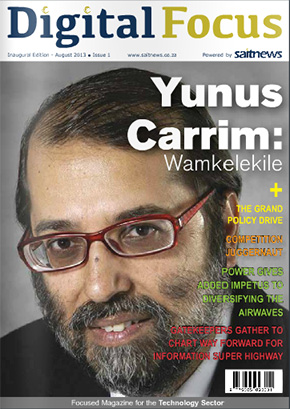Cloud age ushers in new opportunities for businesses
The rapid growth of cloud computing over the last few years has completely revolutionised how businesses operate in the African continent as well as globally. Companies are, with increasing frequency demanding more flexible and agile computing models that leverage in-memory technology, mobility and cloud computing.
In 2011, trends like bring your own device started gripping the corporate office space, and in a short time the new norm was one where employees had access to information anywhere and anytime. To cope with such demands, IT departments began to turn to cloud-based environments, as this allowed staff members using smartphones, tablets, andmobile PCs to complete work-related tasks regardless of their physical location. Productivity improved, as did employee morale.
SAP, market leader in enterprise application software, recently produced a research paper titled “Unleashing the Cloud-Putting Mobility to Work”, in collaboration with Oxford Economics. , One of the key findings was that global IT executives are more open to the use of cloud technology because cloud is enabling them to provide the tools, technology, and infrastructure required to operate effectively in the new mobile world and make tech users more efficient and flexible.
In the last few years, many forward-looking companies have also taken advantage of the fact that cloud platforms enable innumerable important mobile capabilities for customers – instant messaging apps and social media to interact with stakeholders, to name a few. However, to realise their strategy-driven goals of improved efficiency, customer satisfaction, and business performance, IT departments clearly need end-to-end business strategies to make cloud and mobility work successfully for them.
With the increasing number of mobile devices being used to access data remotely, many organisations are contemplating moving their information from their on-premise data centres to outsourced data centres off-premise in the cloud. Data in the cloud is distributed, which makes it more accessible and thereby simplifies an organisation’s IT requirements. Mobile clouds also reduce IT costs by enabling business users to access data in real-time via their mobile device and thusremoving the need for an on-premise infrastructure within a data centre. Thedeployment of analytics and reporting tools has also made it extremely easy for IT personnel to monitor device usage, billing and other statistics
The lack of legacy IT systems and incredibly high uptake of mobile has helped ensure that the African continent become fertile ground for the adoption of mobile applications in the cloud. Globally, the telecom industry views cloud as a key to drive revenue growth. A number of communication service providers are already using cloud capabilities to host their value added services successfully in Africa. For example the partnership between Britehouse, an SAP channel partner and MTN, has made it possible for businesses across Africa to be able to access SAP® Business One Cloud. With this technology, businesses are able to focus on critical issues like driving revenue growth and not constantly worry about IT.
Cloud platforms are not only inexpensive, they offer a more efficient business and IT model with far fewer roadblocks to data than the traditional client server architecture with standalone databases, giving rise to a dynamic IT environment.
By PfungwaSerima, SAP Africa CEO













